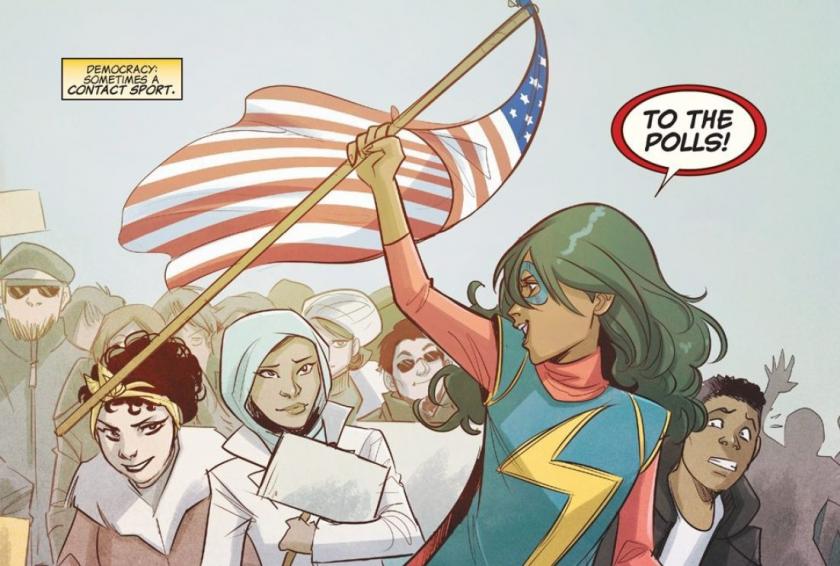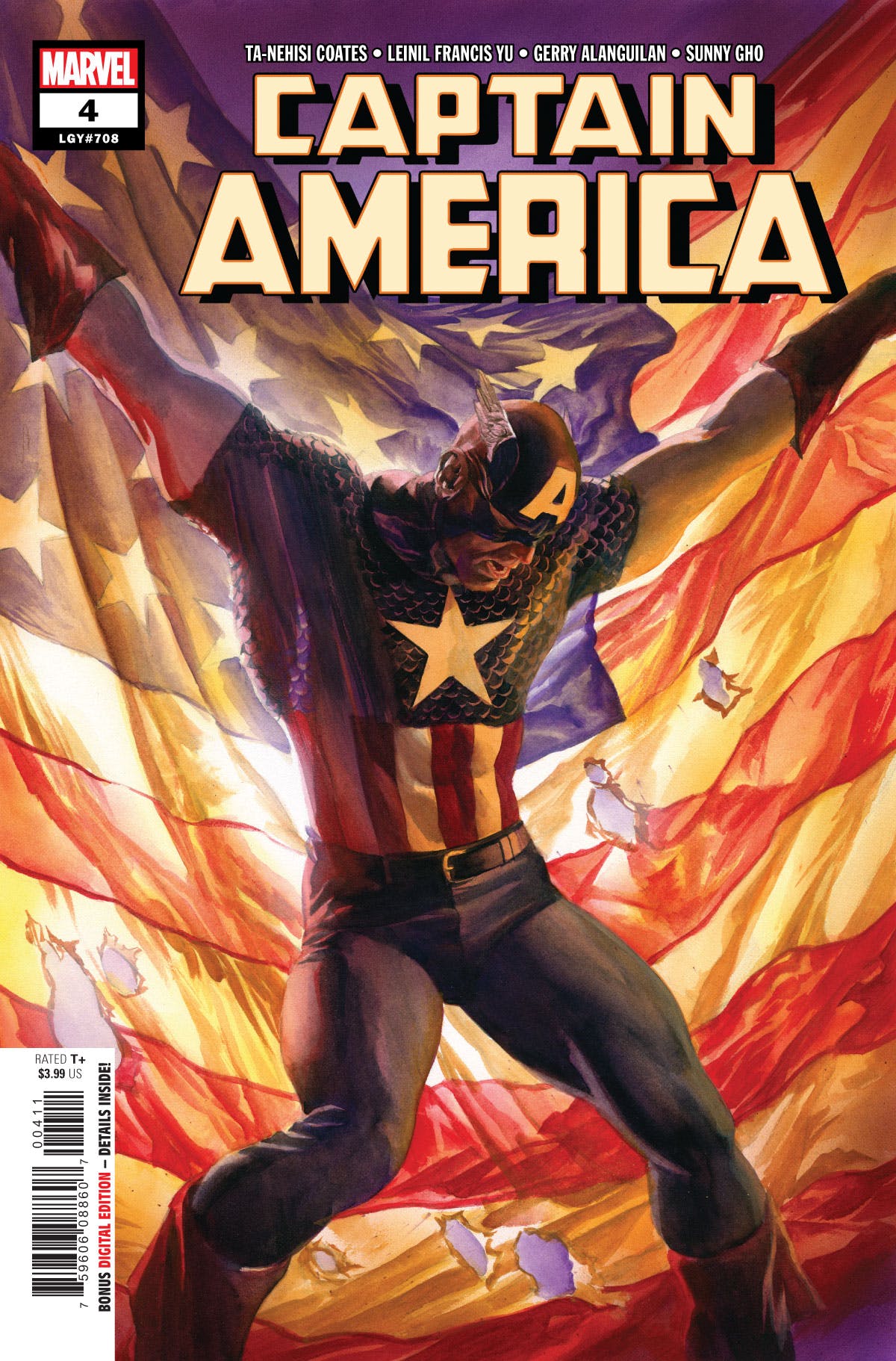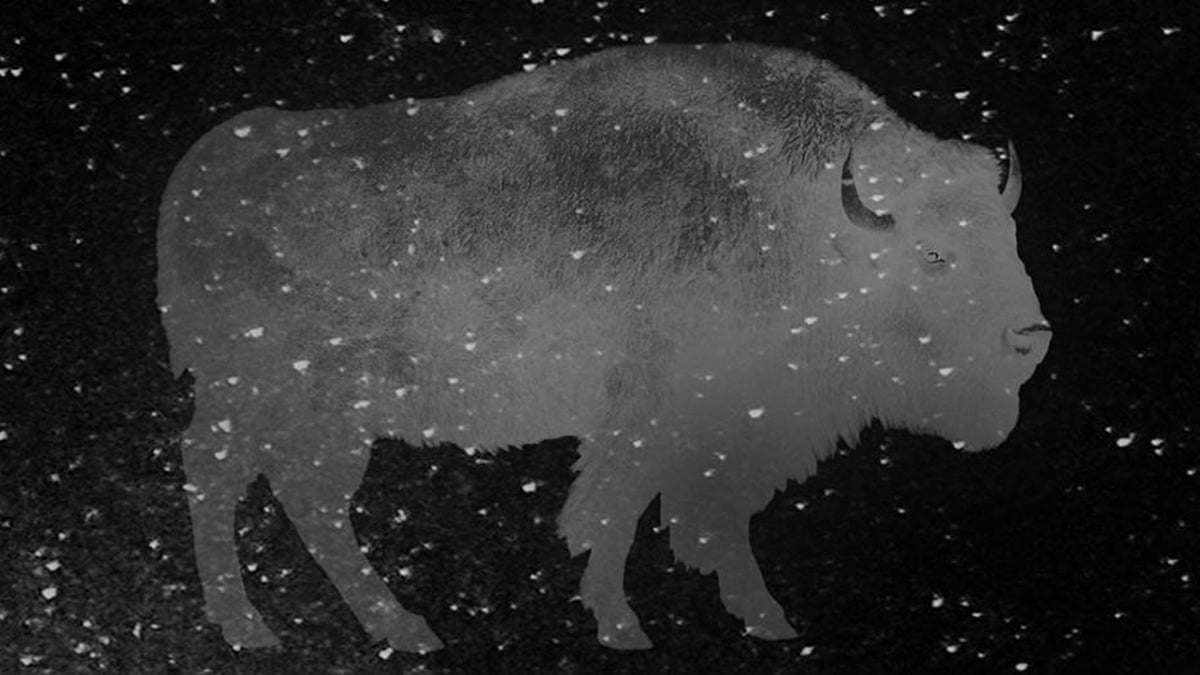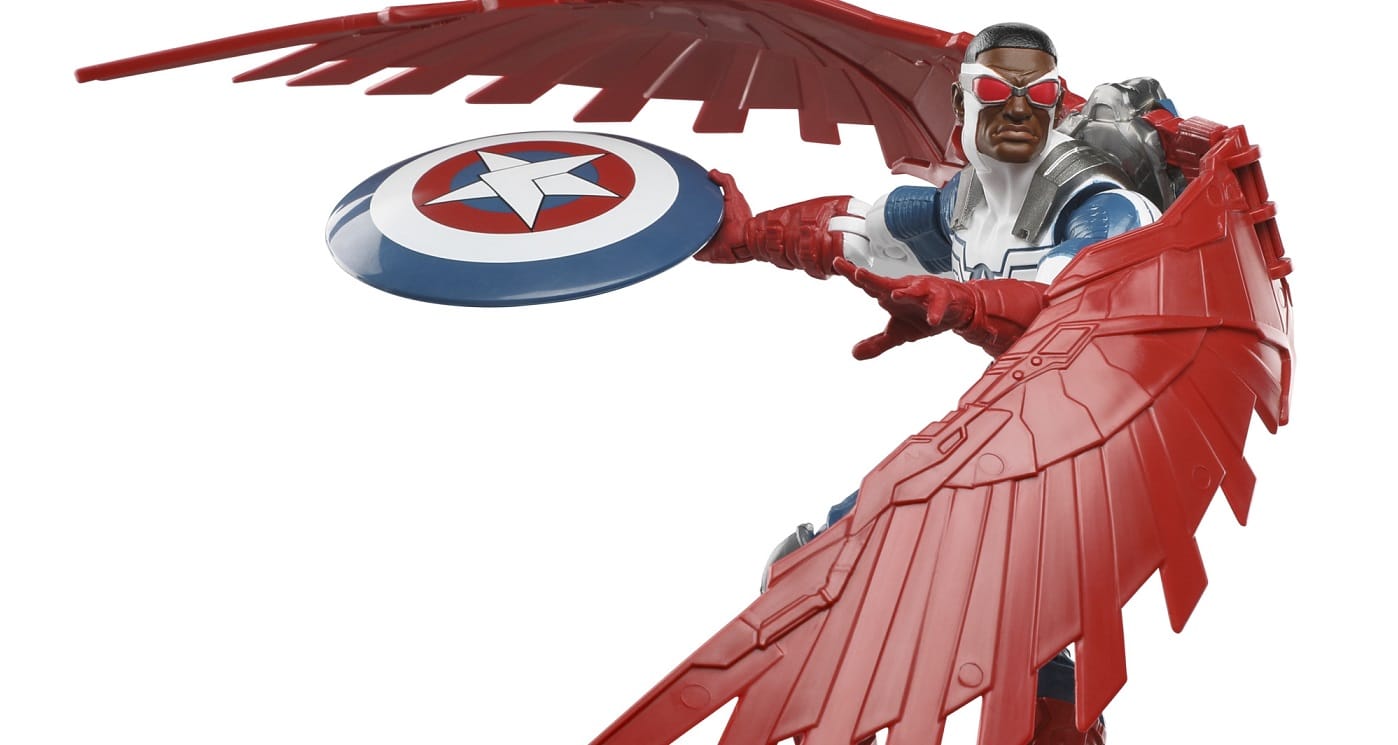The midterm elections are upon us and we need comics to survive it.
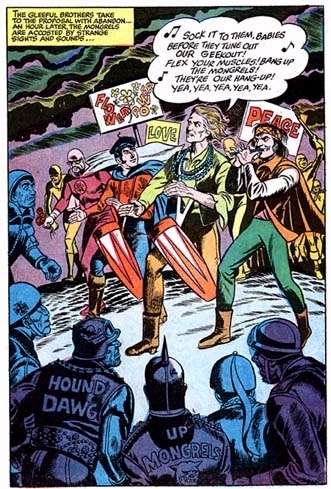
The Sixties had X-Men comics confronting racism, prejudice, and fascism. It had DC Comics’ Brother Power The Geek comics, a short-lived series that was basically about a socially conscious Frankenstein’s Monster infused with hippie blood and a burning desire to turn lazy hippies into peace agitators, looking at activism and non-conformity. It had Spider-Man looking at lower middle-class anxieties and Iron Man facing the consequences of failed foreign policy strategies.
Our current political climate has also been confronted by a very direct and politically-conscious response from the comics community, by stories that address the fracturing of public discourse, civility, and social unity as furthered by some of our elected officials.
In other words, in the same way that 1960s comic book readers brought their comics with them to the polls, figuratively speaking, so too do the comic book readers of today bring their comics to the voting booths. Comics are present when voters cast their ballots, and there are some great examples that can help voters approach some of the issues they have to contend with in these midterm elections when deciding who should help move the country forward.
Here are three comics that contribute to the cause of creating well-informed voters.
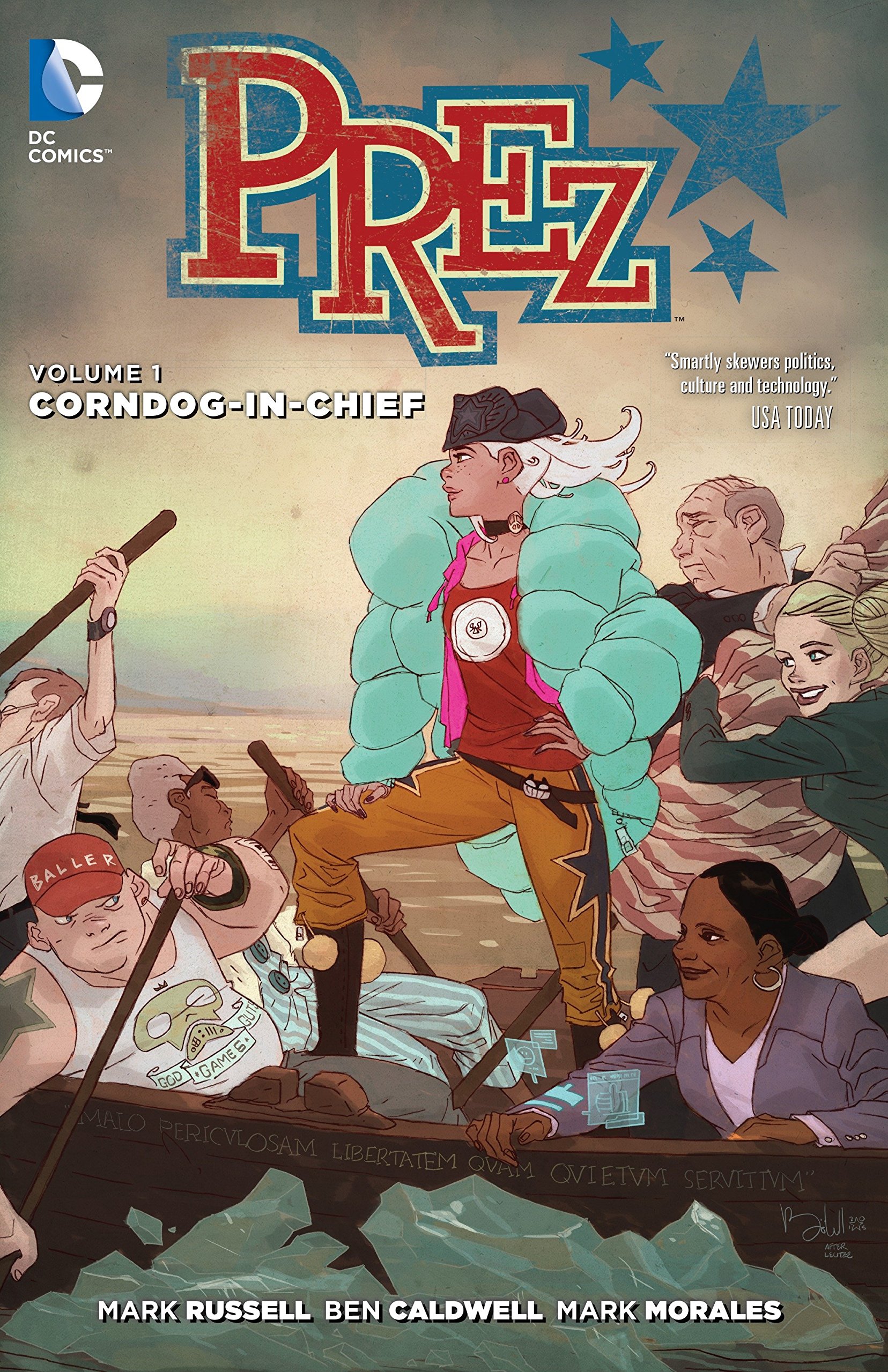
Initially meant as a 12-part story about a teenage president put in office via social media voting and corporate manipulation of the election system, Prez is a cautionary tale that came true much earlier than expected. The story imagines a future where technology has not only made privacy non-existent but also perpetually engaged in all kinds of media. Politics become a kind of means to an end with entertainment as the long-term goal, with candidates publicly announcing their alliances with private special interests. The election process unravels as if it were part of a reality show based on surface level popularity and the potential for controversy. If it sounds dangerously close to what quickly became the Trump era of politics after the 2016 elections, it’s because it is. For readers looking to dig deeper into the effects of constant media consumption and politics filtered through social media, Prez offers just the right amount of insight.
Captain America by Ta-Nehisi Coates and Leinil Francis Yu
Steve Rogers has had a surprisingly progressive track record in terms of reflecting the politics of the time throughout its many different runs, especially after the 9/11 terrorist attacks, where we see Captain America advocating for social unity. Ta-Nehisi Coates picks up Captain America just after Nick Spencer used him to embody America’s turn to tribal politics, intolerance, and its shift towards moral ambiguity in Secret Empire (by turning Cap into an agent of HYDRA). His version of Captain America represents the wounded spirit of the nation, focusing on small-town America as the new battleground where the fight for the country’s future will and is taking place. Coates focuses on how extremist groups such as HYDRA can disrupt political discourse by turning to fear mongering as the primary drive in convincing people to align with dangerous political agendas. This story is interested in offering well-argued explanations as to how a country gets divided, and how previously reliable symbols of patriotism and social responsibility cease being powerful enough in bringing people together.
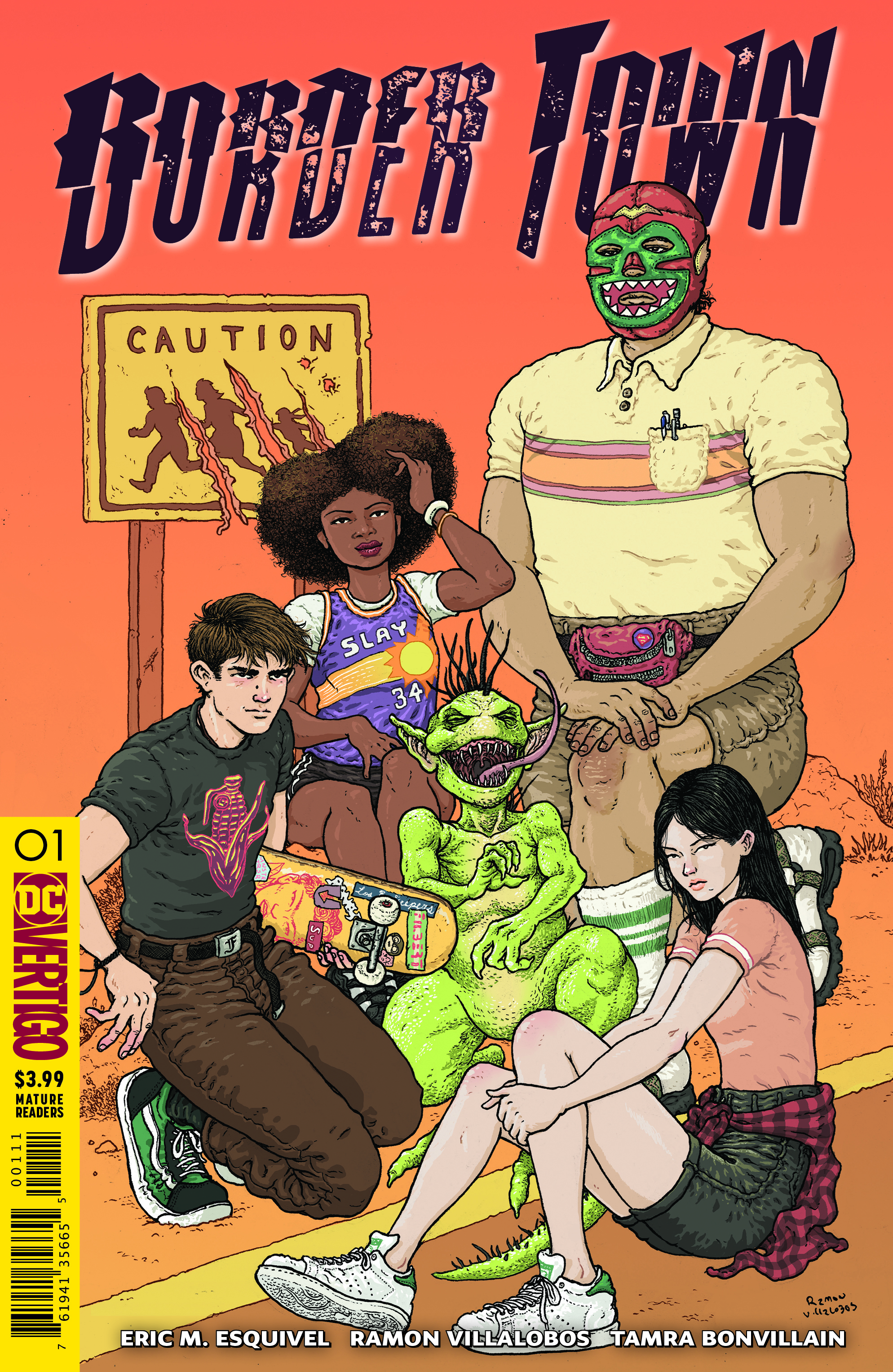
Take the Trump administration’s immigration policy, add mythical creatures and spirits from Mexican folklore, and mix it all in with illegal immigration and you get Border Town. This is perhaps one of the most important books on the comics shelves today. It deals in illegal border crossing via a mythical underground tunnel that crosses Mictlan, the Aztec underworld, which is located right on the border between Arizona and Mexico. This tunnel, which is home to monsters and ghosts such as El Chupacabras and La Llorona, acts as a metaphor for border politics and the current debate over access into US soil should be based on humanitarian or national security concerns. Trump’s policies have resulted in Mexican families being detained and separated at the border in what many consider to be an explicit violation of human rights. Eric M. Esquivel and Ramón Villalobos indulge in Magical-Realism to turn immigration in America into a monstrous and somewhat abstract problem that politicizes human life for campaigning purposes. Border Town seems to want readers to think about how immigrant identities become scary myths that carry more fantasy than reality in the public eye.
___________________________
These comics offer a very immediate look at the current state of our political culture. They deal in issues that can very well be decided in these midterm elections. So read a comic, think about voting and who you think is better suited to represent you within the American system of government.
If you need information on voting centers, candidates, or any other question regarding the midterm elections, you can access the following websites:
https://www.usa.gov/midterm-state-and-local-elections
https://www.nytimes.com/2018/11/05/us/politics/midterm-elections-voting-guide.html
https://www.nytimes.com/interactive/2018/10/02/us/politics/2018-midterm-election-guide.html
Read more comics!


